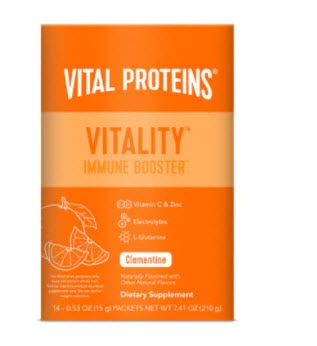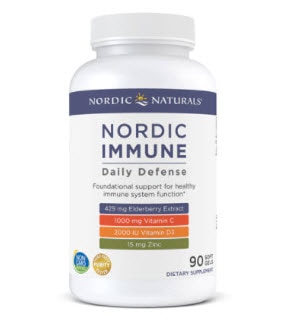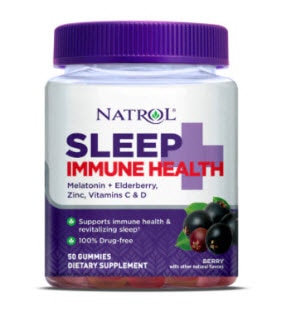These days, we’re using AI for everything from medical diagnostics to creating personalized nutrition plans. So, why not use it for supplement recommendations, too?
AI algorithms can assess factors such as your health goals, dietary preferences, lifestyle and genetic data to suggest supplements tailored to your individual needs. However, while AI has enormous potential in this area, it’s essential to approach these recommendations with caution.
How to use AI for supplement advice
AI-powered platforms can assess your health profile and provide recommendations that align with your wellness goals. These platforms often use health surveys covering diet, exercise, sleep and specific wellness objectives, transforming your responses into personalized supplement suggestions.
For example, if your survey responses indicate a need for immune support, the AI tool might suggest vitamin C or zinc supplements. For those seeking muscle recovery support, the AI may recommend protein powders or BCAA supplements to complement post-workout routines. The tailored approach provided by AI can simplify your choices and help you select products that are more relevant to your lifestyle.
This personalized approach can be empowering, but remember that AI supplements should be a guide, not a replacement for professional advice. Your healthcare provider can help verify whether a supplement really suits your health needs, taking into account any unique medical conditions or medications.
The benefits of AI-driven supplement recommendations
The integration of AI in the supplement industry offers significant benefits for consumers:
Personalization
AI tools analyze your health data to provide customized suggestions. This approach goes beyond generic advice and allows AI to recommend supplements based on your dietary restrictions or health priorities.
A person who follows a plant-based diet might see options for plant-based protein rather than animal-based products, while someone who follows an intermittent fasting diet may receive recommendations for supplements that optimize energy.
Enhanced effectiveness
AI’s ability to refine supplement suggestions has shown promising results in some health areas. A recent study published in the National Library of Medicine examined AI’s potential in guiding supplement use for managing cholesterol.
In the study, participants who followed AI-driven supplement prescriptions achieved a 25.3% reduction in LDL cholesterol levels, significantly higher than the 15.2% reduction in those who followed traditional physician-guided advice. This study supports AI’s potential to provide effective, personalized health interventions.
Data-driven insights
AI algorithms base their suggestions on a vast database of scientific research. As discussed in a recent article in Nature Scientific Journal, advanced AI models use deep learning and reinforcement learning techniques to improve accuracy in health recommendations. This data-driven approach allows AI tools to generate insights aligned with current wellness research, giving consumers confidence in the relevance of their recommendations.
While the benefits are significant, AI recommendations should be balanced with professional guidance and awareness of the technology’s limitations.
The limitations and risks of AI recommendations
While AI recommendations offer convenience and personalization, it’s crucial to be mindful of certain limitations and potential risks:
- Quality of data: The accuracy of AI-driven recommendations depends heavily on the quality of the data input. For instance, an AI tool might recommend a multivitamin without fully considering if you’re already meeting your vitamin needs through diet. Therefore, providing accurate data is essential, but even with that, AI cannot account for every nuance of your health profile.
- Lack of nuanced judgment: AI algorithms operate based on programmed knowledge and cannot replicate a healthcare provider’s comprehensive understanding. While AI may suggest magnesium supplements to support sleep, it cannot determine if magnesium interacts with any other medications you may be taking.
- Over-reliance on technology: While AI tools can offer insightful guidance, they are best used as a complement to—not a replacement for—professional advice. Solely trusting in AI to guide your supplement use may result in missed opportunities to discuss potential risks with a healthcare professional.
In a field as personal as health and wellness, it’s essential to treat AI recommendations as preliminary guidance and always verify with a trusted healthcare provider.
Tips for safe and effective use of AI
If you’re considering AI-driven supplement recommendations, here are some tips to do so effectively and safely:
Consult with your healthcare provider
AI can provide helpful suggestions, but a professional’s advice is essential. Your doctor or nutritionist can confirm whether AI-suggested supplements, such as omega-3 or probiotics, are compatible with your health needs and current treatments.
Carefully check product labels
AI might suggest certain supplements, but it’s essential to read labels and understand what’s in each product. Supplements like vitamin D can vary in dosage and additional ingredients, so it’s crucial to confirm if the supplement fits your needs.
Use reputable AI platforms
Opt for AI tools that clearly outline their data sources and privacy practices. Trusted platforms will provide transparency about the research, support their recommendations, and safeguard your personal data.
Stay informed
The field of AI in health is continually evolving. Following reputable health and wellness updates ensures you’re aware of new research or guidelines that may impact your supplement choices. You can also ensure that you know about new tools or advancements that can offer added benefits.
The future of AI in supplement recommendations
The future of AI in supplement recommendations promises more adaptive and personalized experiences. Emerging AI tools will likely integrate real-time data from wearable devices and health apps, allowing recommendations that adjust dynamically based on daily activities, sleep, and nutrition patterns. This adaptability could soon extend to genetic and microbiome analysis, enabling supplement plans tailored to each person’s unique biological profile.
We can also expect AI to leverage data from diverse populations, leading to recommendations considering factors like age, gender, and lifestyle. This inclusivity ensures more people benefit from customized health insights that are aligned with their individual goals.
As AI evolves, transparency and user control will be essential, allowing consumers to set specific wellness objectives, such as improving energy or immune support, and receive targeted recommendations.
With these advancements, AI has the potential to become a highly responsive and valuable partner in personalized wellness—partner being the important term!




